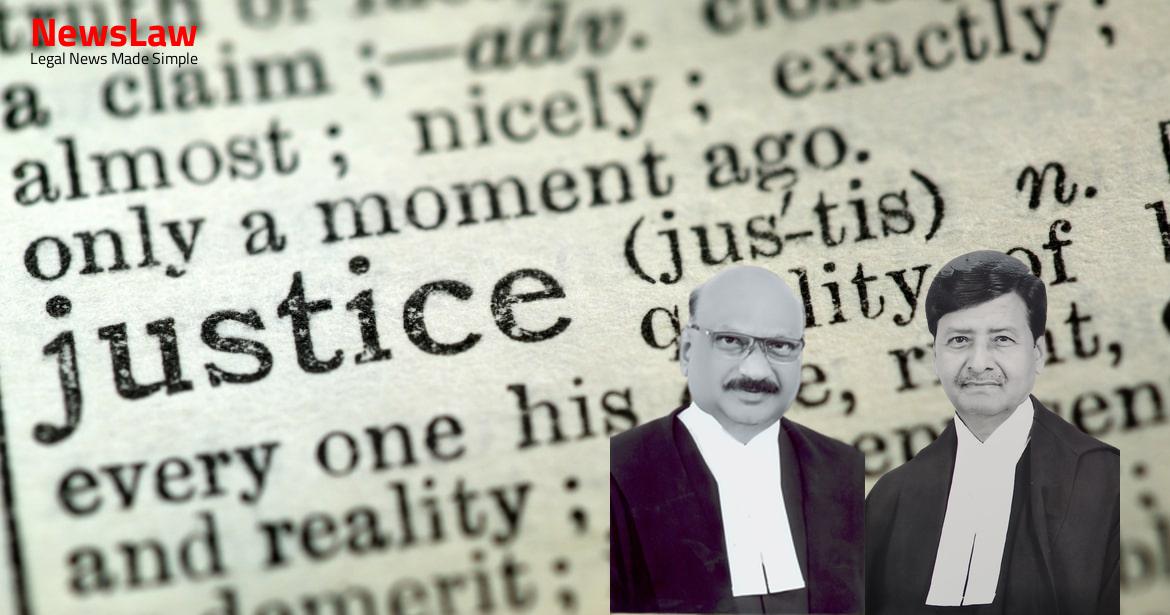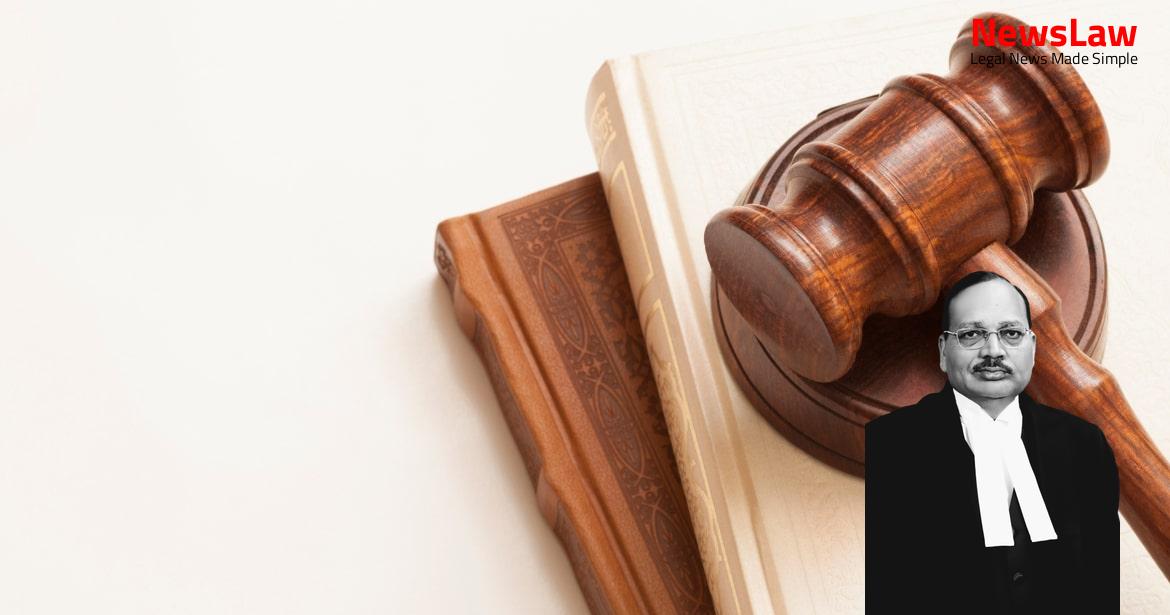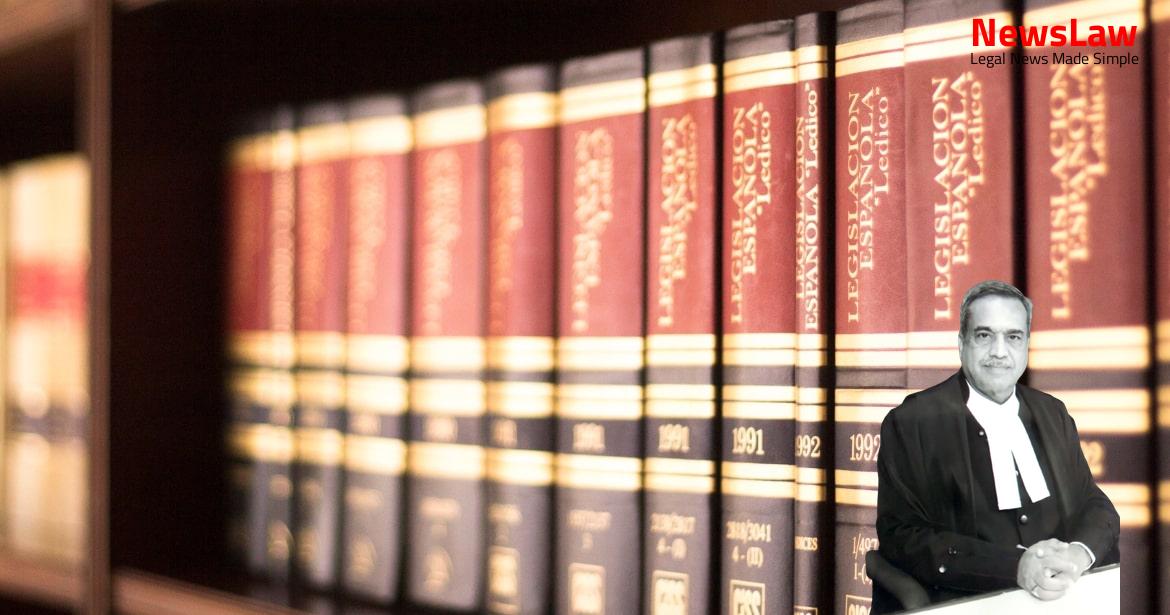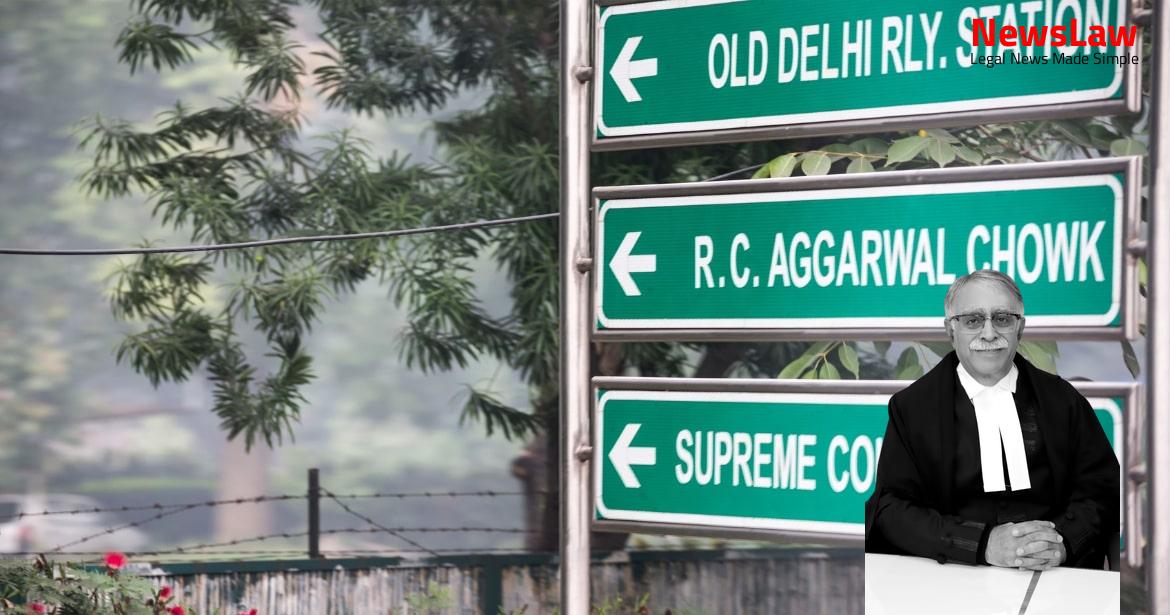In a landmark judgment, the Supreme Court of India has delivered a verdict in the case of acquitting the accused in the abduction and murder case. The appeal, involving Accused No. 1 and Accused No. 2, has been allowed, overturning the convictions by the lower courts. The decision brings closure to a long legal battle and emphasizes the importance of due process and evidence in determining guilt and innocence.
Facts
- Accused No. 1 led to the recovery of personal documents of the deceased and other items.
- The appeal is against the judgment of the High Court of Bombay confirming the conviction of Accused Nos. 1 and 2.
- The body of the deceased was recovered on 14.7.2002 from Goraksha Gad at the instance of Accused No 1.
- The first information was lodged on 13.07.2002 as the deceased was untraceable.
- Accused No. 1 demanded money to arrange a job for the deceased, and payments were made to him.
- Accused No 1 was accompanied by Accused No 2 at a rendezvous with PW-1.
- The police filed a charge-sheet against four persons, including the appellants, alleging murder by strangulation.
- Accused No 1 was convicted for cheating the deceased and the informant out of Rs. 45,000.
- Accused Nos. 1 and 2 were convicted for abducting and murdering the deceased under Sections 364 and 302 read with Section 34 of the IPC.
- The case of the prosecution involved the accused deceiving the deceased and the informant, followed by the abduction and murder of the deceased.
- Accused Nos. 1 and 2, now Appellant Nos. 1 and 2, were found guilty of acting in concert to commit the abduction and murder.
Also Read: Tower Infotech Ltd. Bail Order Appeal
Analysis
- The evidence related to cheating is deemed unreliable, leading to the negation of the motive for the crimes alleged.
- Entries in the seized hotel register linking the accused with the deceased were not supported by the owner of the hotel.
- No effort was made by the prosecution to verify the handwriting of Accused No.1 in the seized diary entries.
- Timings of events leading to the recovery of the body were not clearly established, raising doubts on the credibility of the recovery.
- The prosecution’s case attempted to improve by introducing additional material at different stages.
- Recoveries made at the instance of Accused Nos. 1 and 2 are considered tainted and unreliable.
- The voluntary disclosure statement of Accused No.1, leading to the recovery of the body, lacked substantial evidence.
- The circumstances of ‘last seen’ and recovery of the body were not conclusively proven by the prosecution.
- Inconsistencies in witness testimonies, especially regarding timelines and locations, undermined the prosecution’s case.
- Motive for the offenses could not be conclusively proved, and the reliance on cheating as a motive was questioned.
- The prosecution failed to establish the probable cause of death of the deceased.
- Witness testimonies and evidence, including the inquest report, raised doubts on the prosecution’s narrative.
- Panchas and witnesses did not consistently support the prosecution’s case, further weakening the evidence.
- Lack of concrete evidence and inconsistencies in witness statements cast serious doubts on the case against Accused Nos. 1 and 2.
- The circumstances relied upon by the prosecution must be proved beyond reasonable doubt.
- The proved circumstances should form a complete chain to eliminate any doubt about the accused’s involvement.
- In the current case, none of the prosecution’s relied-upon circumstances were proven beyond a reasonable doubt.
- The benefit of doubt should be given to the accused as a result.
- The Courts below erred in convicting Accused Nos. 1 and 2 for abduction and murder due to lack of conclusive evidence.
Also Read: Priority of Employees’ Dues in Asset Sale: SARFAESI Act vs. Land Revenue Code
Decision
- The impugned judgment of the High Court and the Trial Court have been set aside.
- The appeal has been allowed.
- Accused No. 1 has been acquitted of the offence under Section 420, IPC.
- The bail bonds of the accused stand discharged.
- Accused No. 1 and Accused No. 2 have been acquitted of the offences under Sections 364 and 302 read with 34, IPC.
- On 08.08.2014, bail was granted to the appellants.
Also Read: Landmark Judgement on Consumer Rights in Healthcare Sector
Case Title: UMESH TUKARAM PADWAL . Vs. THE STATE OF MAHARASHTRA
Case Number: Crl.A. No.-001029-001029 / 2014



